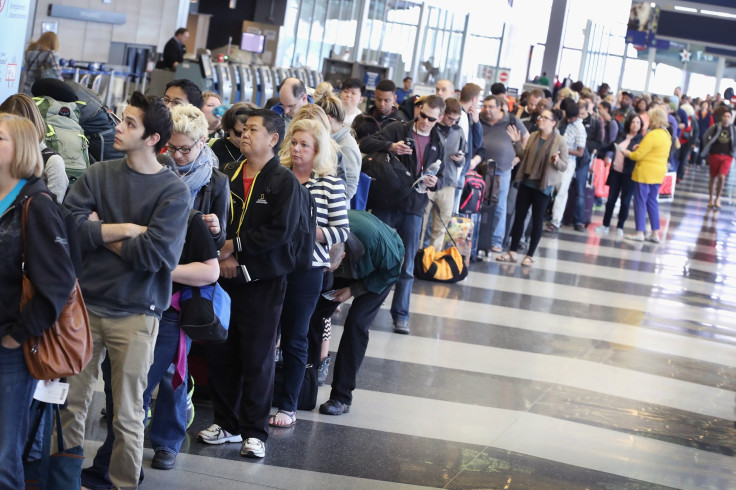Trump's Laptop, Tablet Ban On Flights From Europe Delayed -- For Now

President Donald Trump’s administration was reportedly considering extending the electronics ban to flights coming into the U.S. from European countries, but that idea seems to have been pushed aside for now, the Guardian reported.
The ban would take after a previous rule that bars travelers from taking laptops, tablets, e-readers, cameras, portable DVD players, travel printers/scanners and other electronics bigger than a smartphone into the passenger cabins. The U.S. Department of Homeland Security put the rule in place in March for flights coming into the United States from 10 airports in Egypt, Jordan, Kuwait, Morocco, Qatar, Saudi Arabia, Turkey and the United Arab Emirates. The possible ban in Europe would resemble the rule in the Middle East.
Read: NASA Budget Cuts: Senators Urge Trump Not To Slash Agency's Office Of Education
EU and U.S. officials met Wednesday in Brussels for four hours after reports last month said the Trump administration was bringing the ban to European countries. The EU and U.S. delegation, led by Deputy Secretary of Homeland Security Elaine Duke, did not talk about implementing the electronics ban for flights from European countries, the Guardian said. European officials reportedly were not given a guarantee a laptop ban was off the table, and instead, Duke promised to keep European officials in the loop if any other measures were to be applied. Meanwhile, a spokesperson for Airlines for Europe, which represents 22 major carriers, told the Guardian there "will further talks next week.”
In a statement, the EU said European and U.S. officials talked about security enhancements, including large electronics in checked baggage.
An EU statement released Wednesday said:
“At the meeting, both sides exchanged information on the serious evolving threats to aviation security and approaches to confronting such threats. Participants provided insight into existing aviation security standards and detection capabilities as well as recent security enhancements on both sides of the Atlantic related to large electronic devices placed in checked baggage.
The United States and the European Union reaffirmed their commitment to continue working closely together on aviation security generally, including meeting next week in Washington, D.C,. to further assess shared risks and solutions for protecting airline passengers whilst ensuring the smooth functioning of global air travel.”
Read: Encryption Debate: Senate Staffers Can Now Communicate Through Encrypted App Signal
Homeland Security previously said the electronics ban involving Middle Eastern airports was put in place because U.S. officials were “concerned about terrorists' ongoing interest in targeting commercial aviation.” The DHS also cited the explosion at Brussels Airport last year and other incidents.
“Evaluated intelligence indicates that terrorist groups continue to target commercial aviation, to include smuggling explosive devices in various consumer items,” DHS said.
After Homeland Security implemented the ban on incoming flights from the Middle East in March, it did not clarify if the laptop ban would be extended to other countries, but its site noted “as threats change, so too will TSA’s security requirements.”
© Copyright IBTimes 2025. All rights reserved.




















